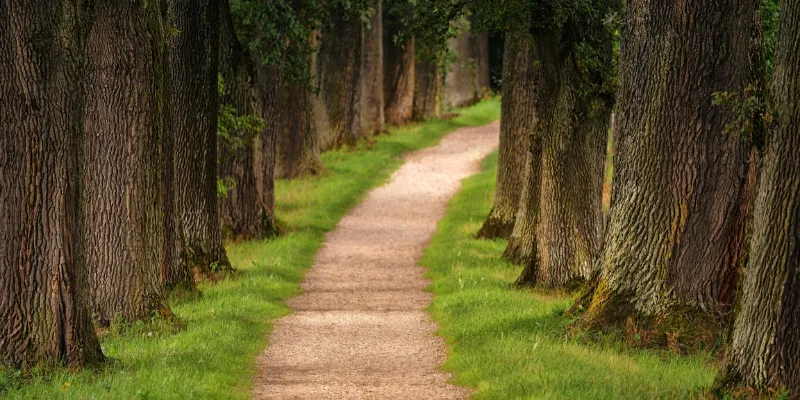Sustainable livelihood: A look at 5 positive trends for the next decade
India’s social entrepreneurs are finding new ways to empower people to solve their problems & by strengthening sustainable livelihoods, they’re creating the space for more people to lead in their own communities.

As COVID-19 disrupts millions of livelihoods in India, the future looks daunting. Projections show that in the worst-case scenario, 104 million more people in India could fall below the poverty line.
The country’s migrant workers report losing one to three weeks of work — an income loss of INR 4,000-10,000 per worker (approx. USD 50-130).
In 2019, Ashoka partnered with Target Foundation to bring together social entrepreneurs from South Asia working to create sustainable livelihoods. A livelihood is “sustainable” when it can offer a stable, dignified means of living, even in times of crisis and change, without undermining the natural resource base.
While challenges of our new reality are overwhelming, we’ve also seen signs of progress over recent years that we can carry into the post-pandemic world.
Today we’re reflecting on our conversations with leading social entrepreneurs in 2019 and sharing five positive trends that emerged for the next decade of developing sustainable livelihoods.
1. Social entrepreneurs driving the solutions.
In light of the pandemic, several foundations have put out calls for working with social entrepreneurs on solutions. The Council on Foundations has also launched a pledge to loosen or eliminate the restrictions on current grants, contribute to emergency response funds and support grantees with making policy changes such as those that impact workers. This provides an opportunity for social entrepreneurs to innovate further.
Ashoka Fellow Sanjeev Kumar, Founder of The Goat Trust, sees social entrepreneurs as key change agents in creating solutions because “they are not in this for money— they work with people and have a more people-centric and holistic approach.”
2. Beneficiaries becoming actively involved in policy-making.
The pandemic has put policy-making under the magnifying glass. A PWC report notes that policies and projects often flounder when stakeholder involvement in the policy-making process is missing. Social entrepreneurs have shown that it’s essential to involve everyone in the solution.
Ashoka Fellow Sajida Rahman Danny, who founded Parents Forum for Differently Abled (PFDA) in Bangladesh, recalls, “When we began our work, policymakers hardly interacted with organisations like us to take feedback or ask for participation in creating any policies.” Now, she says, “there is an active discussion (with us) about the inclusion of people with disability at the workplace and the government is also introducing policies to support this.”
Sanjeev also believes that the government’s role will shift such that there is more “information-gathering from people and organisations to understand the problem fully.”
3. Women taking greater control of their finances
A recent World Bank study noted a gender gap in India’s push for financial inclusion.
This could change in the coming years, says Mayura Balasubramanian, the CEO & founder of Craftizen, an organisation that works with women entrepreneurs from marginalised communities to develop craft-based skills and generate more income. “I think, in the years to come, women will become a major stakeholder in the whole livelihood sector because they’re more productive and better at handling capital,” she says.
Ashoka Fellow Anita Ahuja, co-founder and president of Conserve India, has been working with women artisans for several decades. She says, “I have seen women coming forward and taking more responsibility and I think in future we should see women taking more financial risks, which is not happening currently.”
4. Using technology to develop innovative solutions.
As technology grows more accessible, social entrepreneurs are employing it in many creative ways.
Ashoka Fellow Sugandha Sukrutaraj, the founder of AMBA, is creating opportunities for youth with intellectual disabilities to earn by channelling their skills for doing back-end facial annotations for an artificial intelligence solution. This helps prevent accidents of public transport on highways in the USA.
When she started years ago, she was surprised by how quickly the organisation grew, reaching 3,000 students across 9 states in just two years. In the decade ahead, she believes technology will allow them to reach a global scale.
5. Innovative business models emerging from the village level
How can we use resources more sustainably? Looking to the future, Ashoka Fellow Sanjeev Kumar sees "a larger debate arising at the micro-level, at the village level, to answer this question.” In the future, he says, “problems such as climate change and natural resource usage will be taken seriously at these levels, as they will be bearing the impact of this and will be more aware.”
Here social entrepreneurs can play an important role, Sanjeev says, through helping to foster a better understanding of the problem based on its geographic and cultural context, and co-creating models adapted to the context. “This way, we avoid the trap of creating one model for all.”
Ashoka Fellow Abhinav Agrawal, Founder of Anahad Foundation— an organisation empowering folk musicians using technology — says we need a transparent system that works in harmony across different communities. In the coming years, he predicts we will create “more innovative models” that solve specific problems starting from communities themselves.
What do these trends mean?
India’s social entrepreneurs are finding new ways to empower people to solve the problems impacting their lives. By strengthening sustainable livelihoods, they’re creating the space for more people to lead in their own communities.
During our global crisis, these long-term trends are a sign of hope for a world where everyone can be a changemaker.
(Edited by Apoorva Puranik)
(Disclaimer: The views and opinions expressed in this article are those of the author and do not necessarily reflect the views of YourStory.)







